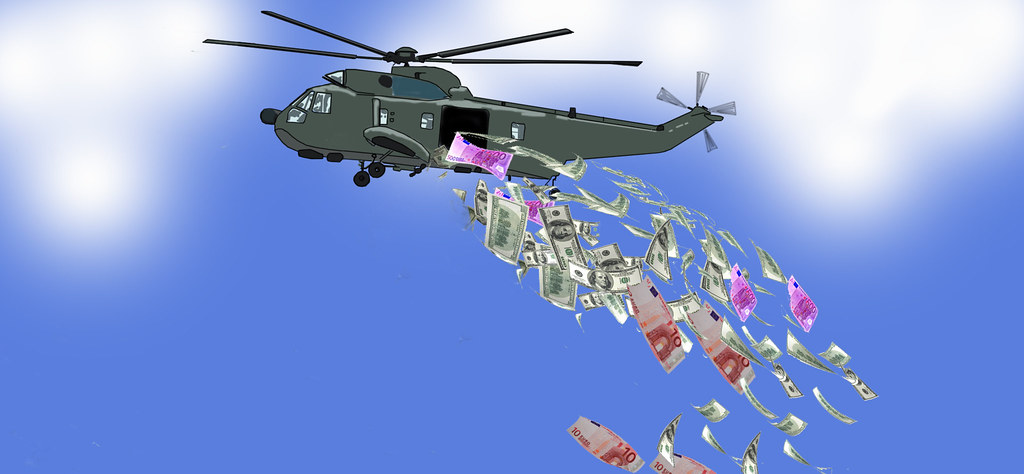In 2020 the Federal government started sending checks to many Americans in response to COVID-19. The presumption was that Uncle Sam’s checks would make us better off. But government spending cannot make a nation wealthier and has contributed to inflation.
To understand this, we must distinguish between money and currency. Money is a medium of exchange, or a way to make purchases. People accept money when they sell things because they expect to exchange it for things they want. Many different items have served as money in different places and times, from tobacco to gold, silver, paper, and soon possibly Bitcoin.
You or I have money because we produced something, worked for someone, or sold something of value, like a car. Or because someone who earned money gave it to us as a gift or inheritance. Money represents unconsumed production.
Currency is the item serving as money. In the U.S. today it is the dollar, of course: green pieces of paper or entries in bank accounts.
Once an economy moves beyond using commodity money, currency must be produced. Whoever produces the currency can acquire goods and services without producing anything. This explains the necessity of controlling counterfeiting. A good currency must be hard or impossible to duplicate.
Governments long ago took over supplying currency because the supplier can usually make some extra to spend themselves. When metal coins served as currency, a type of counterfeiting called “scraping” was possible. Someone could scrape a little off several coins and mint an extra one. Kings protected against scraping by placing their royal seal on the coin; a defaced seal would reveal scraping. Of course, kings charged for minting coins.
Beginning with the CARES Act, Uncle Sam authorized $4.6 trillion and spent $3.6 trillion, much of it transferred to households and businesses through stimulus checks, the Payroll Protection Plan, and assistance for landlords. Yet the government can only make currency, not money. If you earn an extra $3,000 from part-time work, you can spend more than before but there are also more goods and services available. A $3,000 stimulus check did not make more goods and services available.
One of Adam Smith’s great insights in The Wealth of Nations was recognizing that wealth depends on our ability to produce and consume. Previously people associated wealth with possessing large quantities of gold and silver. Smith recognized that the true value of gold was its ability to be exchanged for consumption goods.
More currency does not increase our ability to produce goods and services. Currency creation can make the persons who get the dollars to spend first better off. Suppose the Federal Reserve doubled the number of dollars and gave them all to you. Prices would likely double, but you could still buy a lot, lot more than before.
Government can also tax money from some Americans and transfer it to others. But taxes and transfers cannot make us all better off. If Uncle Sam taxed everybody $10,000 and gave us the cash back, we would merely be where we were before.
COVID spending arguably reduced our ability to produce goods and services. Government checks caused some to work less or stop working altogether. Labor shortages have worsened supply chain problems, making us at least temporarily poorer.
Inflation costs Americans as well. Most Americans will receive raises to offset higher prices (this is part of the inflation), but prices and our incomes do not rise simultaneously. And we have no guarantee that a raise, when it comes, will completely offset inflation. The cost of inflation includes fear and anxiety.
All of this began with an impossibility: government redistribution cannot make all Americans more prosperous. Confusing currency and money sustains an impression that larger bank balances increase prosperity. Today some politicians promote government checks as relief from inflation. They apparently hope to pull the same ruse on us again.
For more great content from Budget & Tax News.
For more from The Heartland Institute.
